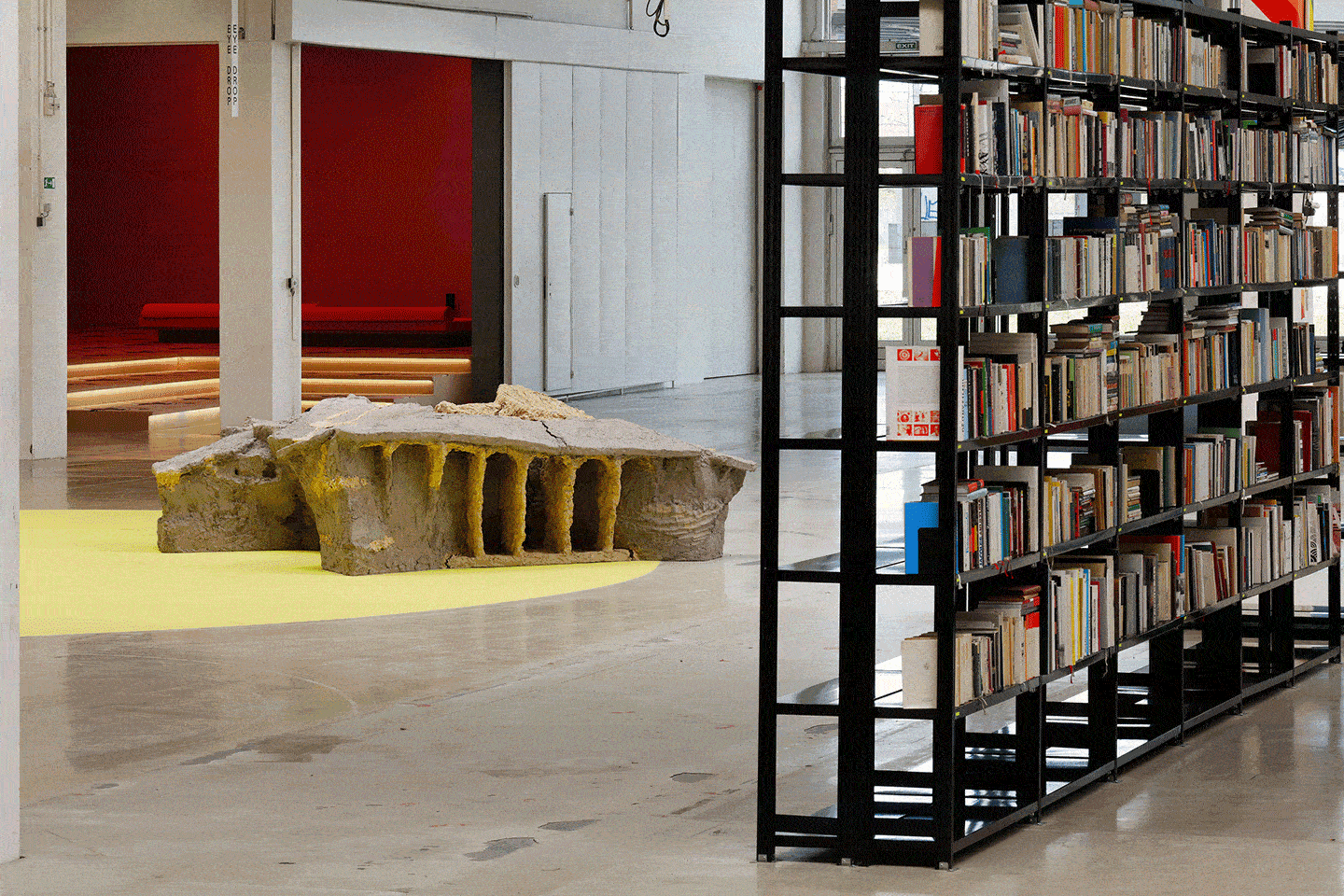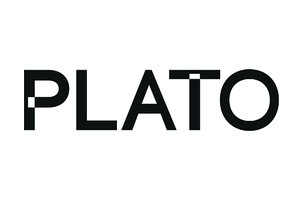"Porážková 26
702 00 Ostrava
Czech Republic
PLATO – the Gallery of the City of Ostrava moved to new spaces in April 2018. Instead of the costly reconstruction which usually precedes such a move, PLATO took advantage of the specific features of the original building of an abandoned DIY store and filled it up in an ingenious way. Over 12 months a curatorial team and 18 international artists have built the complete gallery infrastructure. Six exhibitions within the Temporary Structures cycle gave rise to a bistro, a gallery shop, a library, a cinema, a theatre stage or four expansive environments on the theme of the display. Now, a year after its opening, PLATO has announced the completion of all the functional zones necessary for the fully-fledged operation of the institution.
With its long-term Temporary Structures project PLATO has upended the usual approach when a work of art as an object of observation enters the furnished space of the gallery ready to accept the viewer. In the empty hall of the former DIY store the Gallery of the City of Ostrava (CZ) offered a completely different concept. In the course of one year we worked with artists and curators on works of art that provide visitors with up-to-date comfort, can fulfil practical functions expected in a gallery and form the background to other activities. Dividing the project up into stages obviously had its practical reasons, but we have always perceived the gradual metamorphosis of the venue over the one year as a quality which cannot be replaced and, unfortunately, repeated. What is now a completed set of functional works of art can be taken both as an integral component part of the place ready to accommodate new activities and as a long-term exhibition introducing viewers to the different facets of contemporary art.
A bistro, a cinema, a library, a shop, a gallery garden, a theatre scene, as well as exhibition architecture, facilities for educational activities and services to visitors are usually taken for granted in a gallery. We do not think about the extent to which they influence our experience of art which is why we come to the gallery. Yet, their appearance, arrangement, size and location in the building significantly determine what we see, experience, want and are allowed in the end. They subliminally prescribe our behaviour in the space, limit or expand the ways of its use. They direct our movement, make some possible behaviours preferential and set the overall mood of the visitor, provide referential points and frame one’s own experience of art.
Contemporary art consistently points out that at every moment we are captives of regulations and invisible or hidden rules that we subliminally observe. It is like an autopilot that may allow us to devote ourselves to something apparently more important, but we are actually dependent on it. And we often have no idea as to who set up that autopilot and how, nor when it was switched on. We have various inherent expectations that we are unaware of, and only when they are not fulfilled are we alerted. PLATO at least partly switched off this autopilot when, in the last year, it offered its visitors a chance to take part in gradually building the gallery in which the boundaries between practical functions, non-artistic activities and art disappear and re-emerge. Each stay in this environment with which the viewer has to repeatedly become familiar offers something of an awakening. We understand that a dream is sometimes more comfortable and pleasant than reality, but at the same time we are helpless about it and cannot share it with others.
Over the next few years Temporary Structures will form the framework or point of departure of exhibition projects, events and programmes of a hybrid nature. One of the central themes of PLATO, founded in 2013 originally as a grant project and currently operating in what is its third venue in Ostrava, has been discussion of the means of perception of contemporary art, the impact of the institutional framework on the form of production of art and an experiment with the exhibition as a historical format of art presentation.
Marek Pokorný
Director of PLATO
Temporary Structures 1–6
Library
Jan Šerých: Mutual Investigations (2018)
Bistro
Dominika Olszowy: PLATO Café (2018)
Shop
Julia Gryboś & Barbora Zentková, Milan Houser, Johana Pošová: Dynasties (2018)
Garden
Atelier Partero, Matyáš Chochola, Rustan Söderling: Garden of the Future (2018)
Cloakroom
Klára Hosnedlová: Studio Oléne (2018)
Display 1
Wesley Meuris: Liquid Octagone (2018)
Display 2
Marge Monko: Sheer Indulgence (2018)
Display 3
Zbyněk Baladrán: The Powerless Source of All Power (2019)
Display 4
Daria Melnikova: House of Muses (2019)
Cinema
Zuza Golińska: Eye Drop (2019)
Infopoint
Stéphanie Lagarde: Shepherds (2019)
Stage
Than Hussein Clark with CPWH: For a Theatre on Mars (2019)
Edcuation facilities
Martin Zet: Yellow (2019)
Curators: Jakub Adamec, Daniela & Linda Dostálková, Michal Novotný, Marek Pokorný



